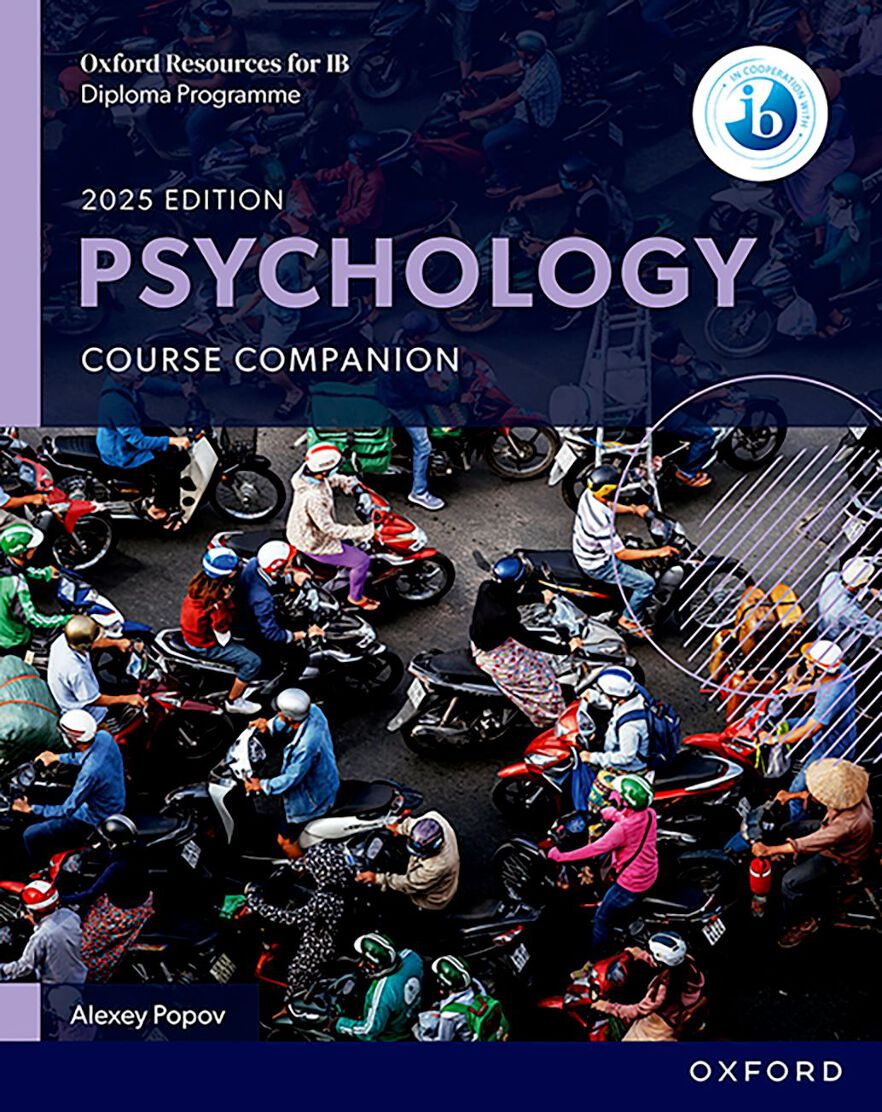Oxford Resources for IB DP Psychology: Course Book

Oxford Resources for IB DP Psychology: Course Book
|
ISBN: |
9781382056663 |
|
Binding: |
Paperback |
|
Published: |
28 Apr 2025 |
|
Availability: |
0
|
|
Series: |
$110.95 AUD
$124.99 NZD
Add To CartDescription
Exam Board: International Baccalaureate
Level and subject: Diploma Programme Psychology
First teaching: 2025 First exams: 2027
Comprehensively updated for the first teaching 2025 syllabus and developed directly with the IB, this resource provides thorough coverage of all Standard and Higher Level content, as well as assessment preparation support. Develop enquiring and independent learners using structured opportunities for critical thinking and concept-based learning.
Contents
Contents
Introduction
Key concepts in IB Psychology
1 Research methods and data interpretation
1.1 What is psychology?
1.2 Research methods in psychology (overview)
1.3 Analysing research (methodological considerations)
1.4 The experiment
1.5 Correlational studies
1.6 Qualitative research
1.7 Surveys and questionnaires
1.8 Ethics in psychological research
1.9 Research with animals
1.10 Descriptive statistics
1.11 Plotting and graphing
1.12 Inferential statistics
1.13 Analysing qualitative data
2 Learning and cognition
2.1 Classical and operant conditioning
2.2 Schema theory
2.3 Biological factors in cognitive processes
2.4 Cognitive models
2.5 Cognitive biases and the dual processing model of thinking and decision-making
2.6 Social learning theory
2.7 Cultural factors in cognitive processes
2.8 Environmental influences on cognitive processes
2.9 Potential for improving cognitive processes
3 Human development
3.1 Brain development
3.2 Stage theories and continuous models of human development
3.3 Sociocultural factors in development
3.4 Enculturation of social norms
3.5 Peer influence
3.6 Role of childhood experiences
3.7 Theory of mind
3.8 Attachment
4 Health and well-being
4.1 Biological explanations of mental disorders
4.2 Biological treatment
4.3 Cognitive models of mental disorders
4.4 Psychological treatment
4.5 Cultural differences in mental disorders
4.6 Environmental factors in mental disorders
4.7 Prevalence of health problems
4.8 Stress and health
4.9 Social learning and health problems
4.10 Prevention of one health problem
5 Human relationships
5.1 Social identity theory
5.2 Cultural dimensions
5.3 Acculturation
5.4 Conformity
5.5 Compliance techniques
5.6 Social learning in group behaviour
5.7 The role of chemical messengers in interpersonal relationships
5.8 Cognitive explanations for interpersonal relationships
5.9 The role of communication and language, and strategies for improving relationships
6 HL extensions
6.1 Motivation
6.2 Motivation in human relationships
6.3 Motivation and mental health
6.4 Motivation and human development
6.5 Motivation in learning and cognition
6.6 Culture
6.7 Culture in human relationships
6.8 Culture and mental health
6.9 Culture and human development
6.10 Culture in learning and cognition
6.11 Technology
6.12 Technology in human relationships
6.13 Effects of technology on health and well-being
6.14 Effects of digital technology on child development
6.15 Effects of technology on learning and cognition
7 Internal assessment
7.1 Overview of the task
7.2 Criterion A: Introduction
7.3 Criterion B: Research methodology
7.4 Criterion C: Data collection
7.5 Criterion D: Discussion
7.6 Ethical considerations in the research proposal
7.7 The presentation of the research proposal
8 External assessment
8.1 Structure of exam papers
8.2 General exam tips
8.3 Sample paper
Bibliography
Authors
Author Alexey Popov